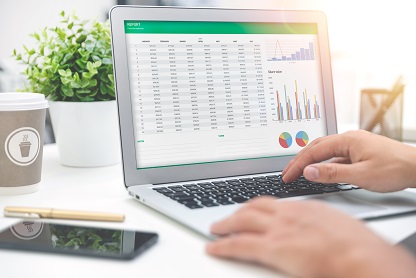Why you should change to digital accounting software

For many charities the Covid-19 pandemic was the catalyst they needed to adopt digital technology to create a better and more efficient way of working. Charities quickly realised that to meet their operational challenges, brought about by the crisis, and the transition to home working, they needed to reassess their existing accounting processes.
A key concern for charities during the time was to ensure their systems were accessible to staff working remotely. A reliance on older accounting software, not always fit for-purpose, soon became evident. Often, this older software did not integrate well with other internal systems or enable online banking. Many of these also relied heavily on manual imputing, both time-consuming and error-prone.
A further worry was that older software can sometimes pose a financial risk, often developing glitches that made it a target for hackers and ransomeware attacks. And, if outdated, can easily become unsupported and require specific knowledge to maintain.
Also, HMRC’s requirement for all VAT-registered entities to comply with Making Tax Digital for VAT means that affected charities now need to keep digital records and send their VAT returns to HMRC each quarter using digitally-compatible accounting software.
Recognising the benefits
Changing to a digital accounting system can be seen as expensive for many smaller charities, but it is important to review its benefits. Both secure and efficient, these newer systems allow for real-time reporting, forecasting and scenario planning. As such, they can prove invaluable for making key financial decisions. A far cry from the limitations of the Excel spreadsheets they usually replace.
Furthermore, for financial reporting charities must comply with the Statement of Recommended Practice and provide detailed analysis of income and expenditure activities. As charities often carry out a range of different activities, a digital accounting system can track all these quickly and easily. It can also potentially link up a donor management system to help record the various types of donations and Gift Aid claims.
Making the switch to digital can present a challenge for charities. However, the task can be less daunting if a gradual, carefully considered approach is taken and some expert advice obtained. An assessment of the inefficiencies to gain an understanding can help, together with asking the finance team for their views on improvements. Involving staff directly in this way can help smooth the way and identify training needs.
We have assisted a number of clients to change accounting systems from desktop versions to online packages. As well as providing more flexible working patterns for finance staff and improved efficiencies, both staff and trustees can have easy access to their charity’s financial information.
A timely approach
The start of the new financial year is usually the easiest time for the changeover as it avoids transferring data between two systems during the year. However, the change can be made in year if it is preferred to keep the old system running while the digital one beds in. It should be remembered that accounting records must be kept for at least six years.
Making the change to digital accounting can significantly improve a charity’s reporting function. With timely and more accurate management information, charities are in a better position to face the future, whatever it may hold.
If you would like advice on choosing the right digital accounting software for your charity’s needs or have any questions please contact Stuart Mackie of our Charities Team at s.mackie@morriscrocker.co.uk or call 023 9248 4356.